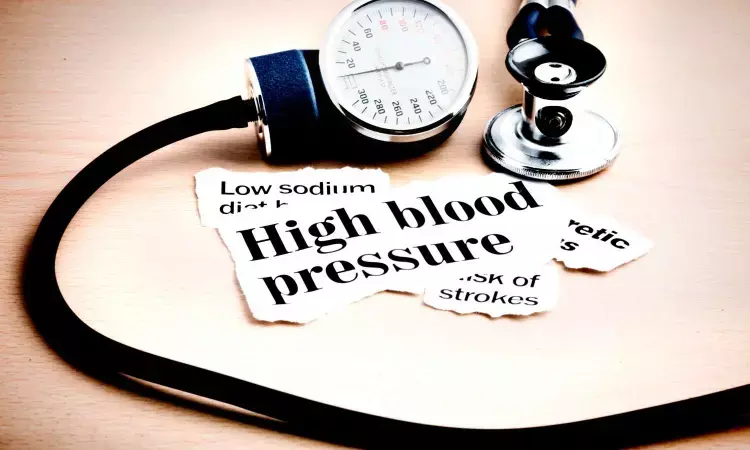- Home
- Medical news & Guidelines
- Anesthesiology
- Cardiology and CTVS
- Critical Care
- Dentistry
- Dermatology
- Diabetes and Endocrinology
- ENT
- Gastroenterology
- Medicine
- Nephrology
- Neurology
- Obstretics-Gynaecology
- Oncology
- Ophthalmology
- Orthopaedics
- Pediatrics-Neonatology
- Psychiatry
- Pulmonology
- Radiology
- Surgery
- Urology
- Laboratory Medicine
- Diet
- Nursing
- Paramedical
- Physiotherapy
- Health news
- Fact Check
- Bone Health Fact Check
- Brain Health Fact Check
- Cancer Related Fact Check
- Child Care Fact Check
- Dental and oral health fact check
- Diabetes and metabolic health fact check
- Diet and Nutrition Fact Check
- Eye and ENT Care Fact Check
- Fitness fact check
- Gut health fact check
- Heart health fact check
- Kidney health fact check
- Medical education fact check
- Men's health fact check
- Respiratory fact check
- Skin and hair care fact check
- Vaccine and Immunization fact check
- Women's health fact check
- AYUSH
- State News
- Andaman and Nicobar Islands
- Andhra Pradesh
- Arunachal Pradesh
- Assam
- Bihar
- Chandigarh
- Chattisgarh
- Dadra and Nagar Haveli
- Daman and Diu
- Delhi
- Goa
- Gujarat
- Haryana
- Himachal Pradesh
- Jammu & Kashmir
- Jharkhand
- Karnataka
- Kerala
- Ladakh
- Lakshadweep
- Madhya Pradesh
- Maharashtra
- Manipur
- Meghalaya
- Mizoram
- Nagaland
- Odisha
- Puducherry
- Punjab
- Rajasthan
- Sikkim
- Tamil Nadu
- Telangana
- Tripura
- Uttar Pradesh
- Uttrakhand
- West Bengal
- Medical Education
- Industry
Ambulatory BP more informative than clinic BP for predicting risk of CVD and all cause mortality: Lancet

In a recent study, Natalie Staplin and team have discovered that ambulatory blood pressure monitoring provides a more comprehensive assessment of health outcomes compared to clinic blood pressure measurements. This finding highlights the importance of utilizing ambulatory blood pressure monitoring in the evaluation of patients referred for hypertension assessment. The findings were published in The Lancet.
The observational cohort study, utilizing data from the Spanish Ambulatory Blood Pressure Registry, spanned from March 2004 to December 2014 and included patients from 223 primary care centers across all regions of Spain. Mortality data were obtained from the Spanish National Institute of Statistics. The study included complete data on age, sex, blood pressure measurements, and body mass index (BMI). Participants were followed up from recruitment until death or December 31, 2019.
Over the median follow-up period of 9.7 years, the study observed 7174 deaths among the 59,124 patients, including 2361 deaths from cardiovascular causes. The findings revealed J-shaped associations for several blood pressure measures. Notably, 24-hour systolic blood pressure exhibited a stronger association with all-cause mortality compared to clinic systolic blood pressure. Even after adjusting for clinic blood pressure, 24-hour blood pressure remained strongly linked to all-cause mortality.
In terms of hypertension subtypes, the study identified elevated risks of all-cause and cardiovascular mortality for masked hypertension and sustained hypertension. However, white-coat hypertension did not show a similar association with mortality risks.
These findings emphasize the superiority of ambulatory blood pressure monitoring, particularly during night-time hours, in assessing the risk of death from all causes and cardiovascular causes. Incorporating ambulatory blood pressure monitoring into clinical practice has the potential to enhance risk stratification and inform treatment decisions for patients with hypertension. This research opens new avenues for improved management and outcomes in the field of cardiovascular health.
As further studies delve into the significance of ambulatory blood pressure monitoring, healthcare professionals and researchers are hopeful that its integration into routine clinical practice will lead to better prevention and treatment strategies, ultimately reducing mortality rates associated with hypertension-related conditions.
Source:
Staplin, N., de la Sierra, A., Ruilope, L. M., Emberson, J. R., Vinyoles, E., Gorostidi, M., Ruiz-Hurtado, G., Segura, J., Baigent, C., & Williams, B. (2023). Relationship between clinic and ambulatory blood pressure and mortality: an observational cohort study in 59 124 patients. In The Lancet (Vol. 401, Issue 10393, pp. 2041–2050). Elsevier BV. https://doi.org/10.1016/s0140-6736(23)00733-x
Dr Kartikeya Kohli is an Internal Medicine Consultant at Sitaram Bhartia Hospital in Delhi with super speciality training in Nephrology. He has worked with various eminent hospitals like Indraprastha Apollo Hospital, Sir Gangaram Hospital. He holds an MBBS from Kasturba Medical College Manipal, DNB Internal Medicine, Post Graduate Diploma in Clinical Research and Business Development, Fellow DNB Nephrology, MRCP and ECFMG Certification. He has been closely associated with India Medical Association South Delhi Branch and Delhi Medical Association and has been organising continuing medical education programs on their behalf from time to time. Further he has been contributing medical articles for their newsletters as well. He is also associated with electronic media and TV for conduction and presentation of health programs. He has been associated with Medical Dialogues for last 3 years and contributing articles on regular basis.
Dr Kamal Kant Kohli-MBBS, DTCD- a chest specialist with more than 30 years of practice and a flair for writing clinical articles, Dr Kamal Kant Kohli joined Medical Dialogues as a Chief Editor of Medical News. Besides writing articles, as an editor, he proofreads and verifies all the medical content published on Medical Dialogues including those coming from journals, studies,medical conferences,guidelines etc. Email: drkohli@medicaldialogues.in. Contact no. 011-43720751


